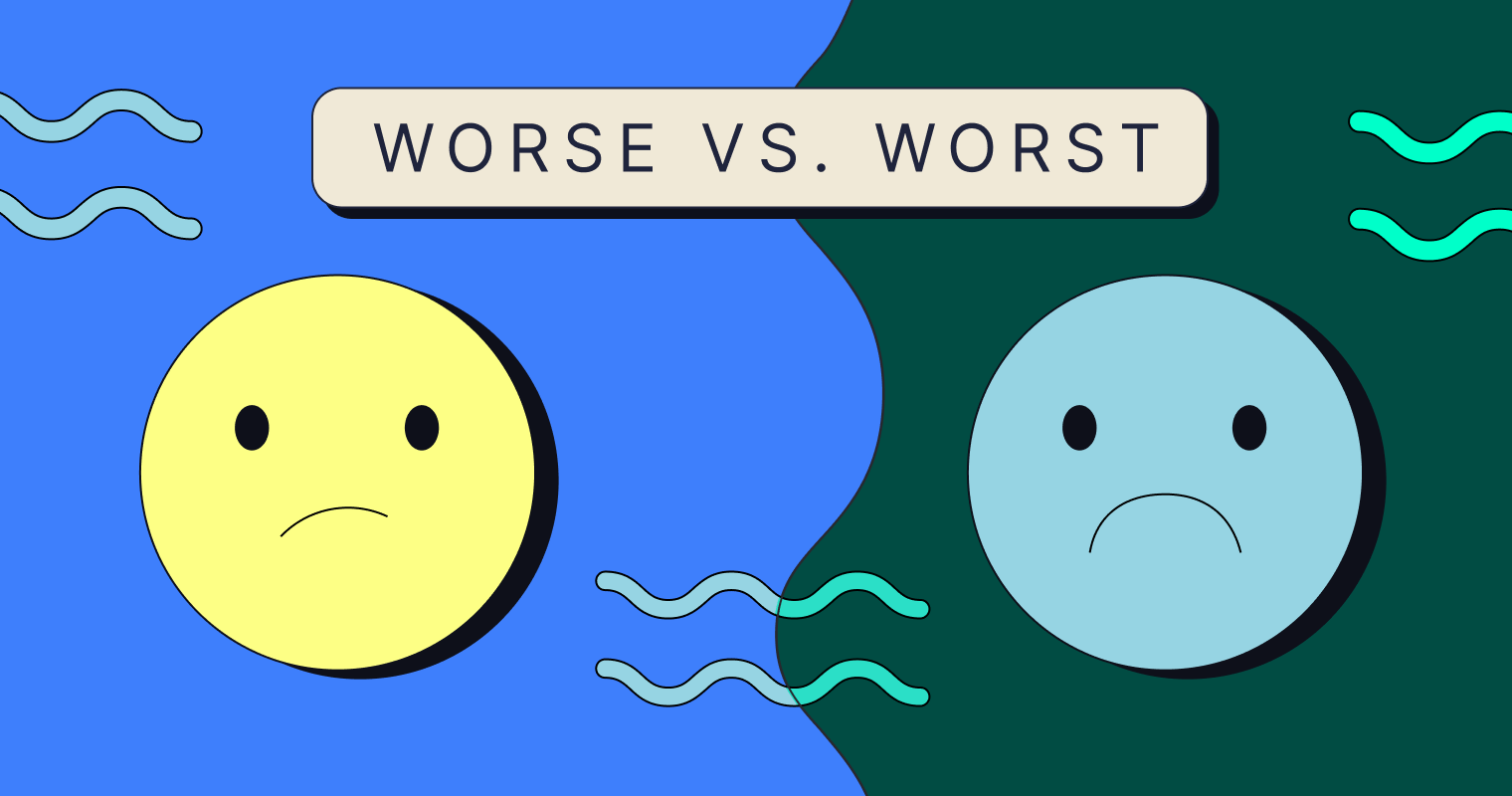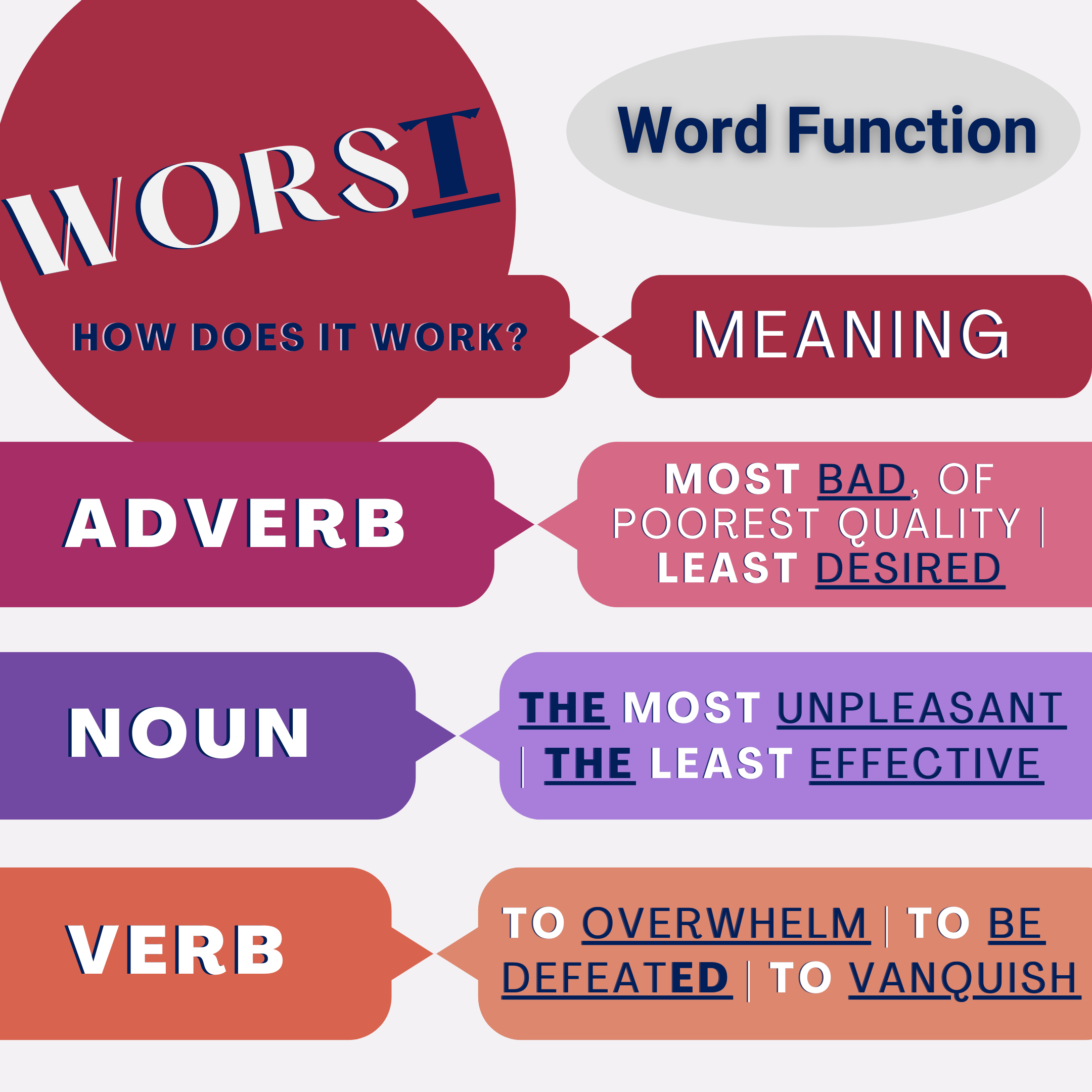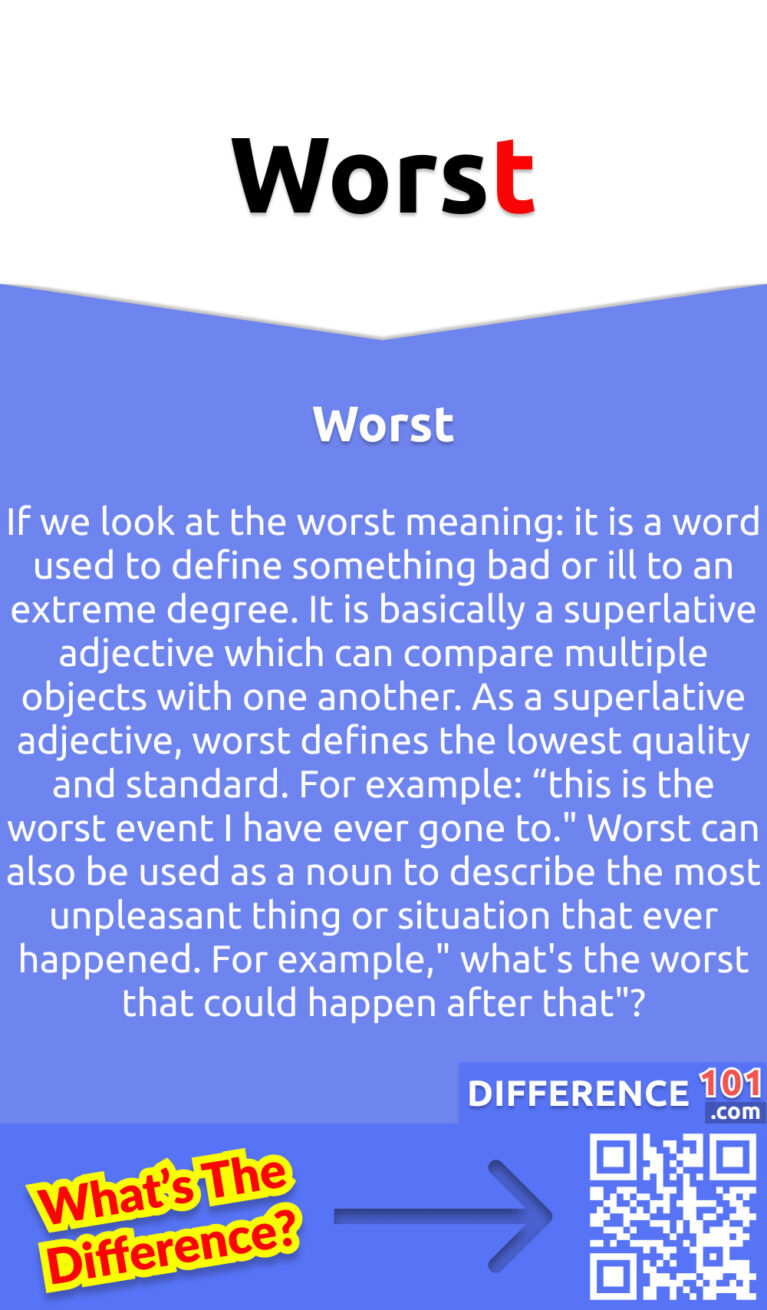Finding Your Fit: Understanding What Makes For The Least Favorable Law Schools In Canada
Thinking about law school is a pretty big step, isn't it? It involves a lot of hope for a bright future and, naturally, a good chunk of money and time. For many, finding the right place to study law in Canada means looking for the very best, but it also means being aware of what might be considered the worst law schools in Canada. This isn't about pointing fingers or being negative; it's simply about helping you make a truly informed choice, so you can avoid a situation that might be less than ideal for your dreams.
You see, when we talk about something being "worst," it often means it's of the "lowest quality" or perhaps the "most unpleasant" or "difficult" experience, in some respects. It can also refer to something that leads to the "most unfavorable" or "undesirable" outcomes, as my text explains. So, in the context of legal education, understanding what makes a law school fall into this category is very important for anyone hoping to build a strong foundation for their legal career. It's about recognizing the signs of a program that might not serve your goals as well as others.
This article aims to shed some light on what these qualities might look like in a Canadian law school setting. We'll explore the various factors that could lead a program to be considered "least good" or "most inferior" when compared to others. Our goal is to equip you with the insights you need to assess potential schools, helping you steer clear of programs that might offer a "most poor" or "unskilled" quality of education or overall experience. It's really about making sure your investment in your future pays off in the best possible way, as of today, May 15, 2024.
Table of Contents
- Defining "Worst" in Canadian Legal Education
- What Makes a Law School "Least Good"?
- How to Spot a "Least Good" Law School
- Making an Informed Choice
- Frequently Asked Questions About Law Schools
Defining "Worst" in Canadian Legal Education
When people search for the worst law schools in Canada, they aren't usually looking for a list of places to simply avoid without reason. Instead, they are often trying to figure out what factors could make a law school experience "least good" or "most inferior" when compared to other options. My text tells us that "worst" can mean something is of the "lowest quality," or it might be "most unpleasant" or "difficult." It can also point to a situation that results in the "most unfavorable" or "undesirable" outcomes. So, in the world of law school, this really means considering everything from the quality of teaching to the kind of support students get, and even what happens after graduation.
It's not just about a school's name or its location; it's about the real, tangible effects it has on its students. A "worst" law school, by this definition, might be one where the academic environment feels "most difficult," or where the resources available are truly "lowest quality." Perhaps the most important aspect is the "effect" it has on a student's future, leading to a "least favorable outcome" in their job search or career path. This perspective helps us look beyond simple numbers and really think about the overall value and experience a law school provides, which is rather important.
What Makes a Law School "Least Good"?
So, what exactly makes a law school fall into that category of being "least good" or "most inferior" in Canada? It’s rarely just one thing; rather, it's often a mix of different elements that, when put together, might create an experience that is "most unpleasant" or leads to a "most unfavorable" outcome for students. We're talking about aspects that truly impact a student's learning journey and their ability to succeed in the legal profession. It's like looking at a puzzle where some pieces just don't fit well, you know?
One major area to consider is the school's ability to prepare its graduates for the real world of law. If a school consistently produces graduates who struggle to find relevant employment or who feel unprepared for the challenges of practice, that could certainly point to a "lowest quality" educational experience. It’s also about the daily life of a student; if the environment is consistently "most difficult" or lacks proper support, that can really take a toll. These are the kinds of things that can make a program feel "most inferior" when you compare it to others that offer a more positive and effective path.
Career Prospects and Employment Rates
A really big part of what makes a law school "least good" often comes down to what happens after graduation, honestly. If a school's graduates consistently face a "most unfavorable" or "undesirable" job market, or if their employment rates in the legal field are much lower than other schools, that's a pretty strong indicator. People go to law school to become lawyers, or to use a law degree in a meaningful way, so if the school isn't helping them achieve that, it's a problem. You might find that some programs have a track record where their alumni struggle to land articling positions, or perhaps they end up in jobs that don't truly require a law degree, which is a bit concerning.
This isn't just about getting a job; it's also about the *kind* of job. Are graduates finding positions that align with their aspirations, or are they settling for roles that don't really leverage their legal education? A "most inferior" outcome could be when a significant number of graduates are underemployed or not employed in the legal sector at all, even a year or two after finishing their studies. This really speaks to the "quality" of the education and how well it prepares students for the competitive legal landscape. It's about the practical effect of the degree, you see.
Student Experience and Support
Another area where a law school might be considered "least good" relates directly to the student experience itself. My text points to "most unpleasant" or "difficult" as definitions of "worst," and these feelings can certainly come from a lack of adequate student support. Think about it: law school is already quite demanding, so if students don't have good access to academic advising, mental health services, or career counseling, the experience can become truly overwhelming. This can lead to a "most poor" overall condition for students, making their time there unnecessarily hard.
Consider the resources available, too. Are the library resources up-to-date and easily accessible? Is there enough space for studying? Are there opportunities for practical learning, like clinics or mooting programs? If these elements are of "lowest quality," it can make the learning environment feel quite challenging and less effective. A school that doesn't invest enough in its students' well-being and practical skill development might, in a way, be providing a "most inferior" environment for learning and growth, which is really something to consider.
Academic Rigor and Faculty Engagement
The core of any law school is, of course, the academic program and the teaching staff. When my text talks about "lowest quality" or "most inferior" in terms of condition or effect, this can absolutely apply to the academic side of things. If the curriculum feels outdated, or if the teaching methods don't seem to challenge students effectively, that could be a sign. It's not just about how tough the courses are, but how well they prepare you for actual legal thinking and practice. A program that consistently receives feedback about its "unskilled quality" in terms of teaching or course content might be one to examine closely.
Faculty engagement also plays a very big role. Are professors accessible to students? Do they seem genuinely interested in teaching and mentoring, or are they mostly focused on their own research with little interaction? A lack of faculty involvement can make the learning experience feel "most unpleasant" and less enriching. If the professors aren't truly invested in student success, the overall educational "quality" can suffer, leading to a "least good" outcome for those trying to learn. This kind of environment can make it much harder to grasp complex legal concepts and truly thrive, you know?
How to Spot a "Least Good" Law School
So, given what we've discussed about what makes a law school "least good" or "most inferior," how can you actually identify these characteristics when you're doing your research? It's not always about a school being overtly "bad" or "corrupt," as my text suggests for one meaning of "worst." Instead, it's often about subtle signs that point to a less-than-ideal experience or outcome. This requires a bit of detective work and looking beyond the glossy brochures. It's about being smart with your research, you see, to ensure you don't end up in a "most unfavorable" situation.
The key is to gather information from many different sources and to trust your gut feelings when something just doesn't seem right. Remember, you're looking for a place that will offer a "least good" return on your significant investment of time and money. This means paying attention to details that might not jump out at first glance but can have a big impact on your future. It's about being proactive in understanding the true "condition" and "effect" of attending a particular institution, which is quite important for your future career, as a matter of fact.
Looking Beyond Rankings
Many people start their law school search by looking at various rankings, and while these can offer a quick overview, they don't always tell the whole story, honestly. Rankings often focus on things like research output or faculty publications, which are important, but they might not capture the "most unpleasant" student experience or the "lowest quality" of career support. A school might rank decently overall but still be "least good" for *your* specific goals if its strengths don't align with what you need. So, don't just rely on a number; dig deeper.
Instead of just seeing where a school sits on a list, try to understand the methodology behind those rankings. What metrics are they actually measuring? Do those metrics truly reflect what makes a law school effective for *you*? For instance, if a ranking heavily weights research funding, but you're more concerned with practical skills training and job placement, then that ranking might not be the best guide for avoiding a "most inferior" outcome in your career. It's about understanding what truly matters for your personal definition of success, which is really key.
Researching Alumni Success
One of the most telling indicators of a law school's effectiveness, or conversely, its "least good" qualities, is what its graduates are actually doing. This goes back to the idea of a "most unfavorable" or "undesirable" outcome. Look for data on employment rates, but go beyond just the percentage. Try to find out what kinds of jobs alumni are getting. Are they securing articling positions, or are they struggling to enter the legal profession? This kind of information can be a bit hard to find, but it's worth the effort, you know?
Websites like LinkedIn can be pretty useful for this. You can search for alumni from specific law schools and see their career paths. Are they working in areas that interest you? Do they seem to be thriving? If you consistently see alumni from a particular school struggling to find relevant work, or if they seem to be underemployed, that could be a red flag pointing to a "most inferior" "effect" of their education. It's a very practical way to assess the "quality" of the outcome a school provides, and it's something many prospective students overlook.
Visiting and Talking to Current Students
Perhaps one of the very best ways to truly understand the "condition" of a law school and avoid a "most unpleasant" or "difficult" experience is to visit the campus and talk to people who are actually there. Online brochures and websites can paint a pretty picture, but they don't always capture the real atmosphere. When you visit, pay attention to how the students seem. Do they look stressed and unhappy, or do they seem engaged and supported? This can tell you a lot about the daily student experience.
Talking to current students is invaluable, too. They can give you firsthand accounts of the "quality" of teaching, the level of student support, and the overall vibe. Ask them about the career services, the accessibility of professors, and any challenges they face. Their honest insights can reveal if a school might lead to a "least good" experience in terms of daily life or academic support. This direct feedback is really helpful in understanding the "most poor" or "unskilled quality" conditions that might exist, and it's something you can't get from any official report, frankly.
Making an Informed Choice
Ultimately, choosing a law school is a deeply personal decision, and what might be "least good" for one person could be perfectly fine for another, you know? The goal here isn't to label any institution definitively as the "worst law schools in Canada" but rather to give you the tools to identify the characteristics that might make a school "most inferior" or lead to a "most unfavorable" outcome for *your* specific aspirations. It’s about being a smart consumer of education, in a way.
By focusing on factors like career prospects, student support, and academic quality, and by doing your own thorough research, you can make a choice that feels right for you. Remember, the best law school is the one that sets you up for success and provides an experience that is far from "unpleasant" or "difficult." It’s about ensuring your significant investment of time and effort leads to the most favorable outcome possible for your future legal career. Learn more about law school admissions on our site, and link to this page Canadian legal education pathways for more insights. Make sure you consider all angles before making your final decision, which is truly important.
Frequently Asked Questions About Law Schools
Here are some common questions people ask when thinking about law schools, especially when they're trying to figure out what might make a program "least good" or "most inferior."
What are the key indicators of a low-quality law program?
A low-quality law program, or one that is "lowest quality" as my text puts it, often shows signs like consistently low bar exam pass rates for its graduates, poor employment statistics in the legal field, or a lack of practical skills training opportunities. You might also notice a high student-to-faculty ratio, or perhaps a general sense of student dissatisfaction with the resources and support available. These are all pretty big clues, honestly.
Do law school rankings accurately reflect a school's quality?
While rankings can give you a starting point, they don't always tell the whole story about a school's "quality" or if it might be "most inferior" for your personal goals. Many rankings focus on research output or reputation among academics, which might not directly translate to the student experience or career outcomes for every graduate. It's often better to look at a variety of factors, including student reviews and alumni success stories, rather than just relying on a single number, which is quite important.
How can I research a law school's career placement success?
To understand a law school's career placement success, which helps you avoid a "most unfavorable" outcome, you should look for detailed employment reports, often found on the school's own website. These reports should ideally break down the types of jobs graduates get, their salaries, and how quickly they find work. You can also use professional networking sites to see where alumni are working and what their career paths look like. Sometimes, reaching out to alumni directly can provide very valuable insights, you know?

301 Moved Permanently

worse vs worst what is the difference?

Worse vs. Worst: 7 Key Differences, Pros & Cons, Examples | Difference 101